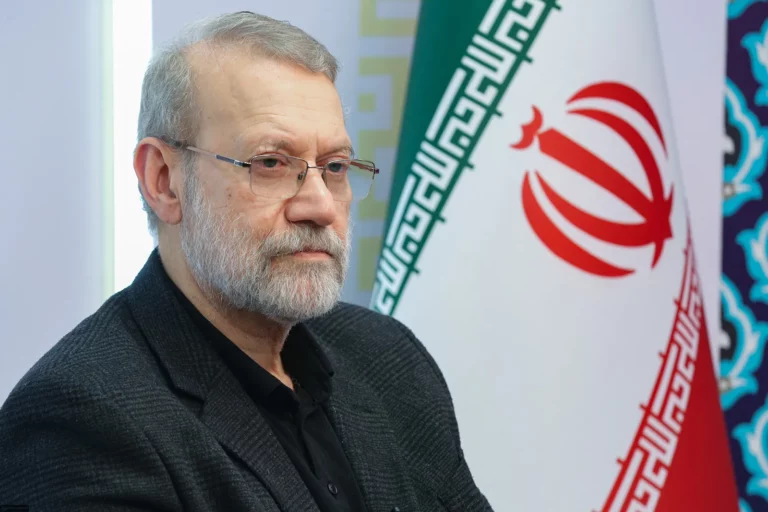 The following Op-Ed by Dan Senor appears in the WSJ:
The following Op-Ed by Dan Senor appears in the WSJ:
New York’s special congressional election on Tuesday was the first electoral outcome directly affected by President Obama’s Israel policy. Democrats were forced to expend enormous resources in a losing effort to defend this safe Democratic district, covering Queens and Brooklyn, that Anthony Weiner won last year by a comfortable margin.
A Public Policy Poll taken days before the election found a plurality of voters saying that Israel was “very important” in determining their votes. Among those voters, Republican candidate Robert Turner was winning by a 71-22 margin. Only 22% of Jewish voters approved of President Obama’s handling of Israel. Ed Koch, the Democrat and former New York mayor, endorsed Mr. Turner because he said he wanted to send a message to the president about his anti-Israel policies.
This is a preview of what President Obama might face in his re-election campaign with a demographic group that voted overwhelmingly for him in 2008. And it could affect the electoral map, given the battleground states—such as Florida and Pennsylvania—with significant Jewish populations. In another ominous barometer for the Obama campaign, its Jewish fund-raising has deeply eroded: One poll by McLaughlin & Associates found that of Jewish donors who donated to Mr. Obama in 2008, only 64% have already donated or plan to donate to his re-election campaign.
The Obama campaign has launched a counteroffensive, including hiring a high-level Jewish outreach director and sending former White House aide David Axelrod and Democratic National Committee Chair Debbie Wasserman-Schultz to reassure Jewish donors. The Obama team told the Washington Post that its Israel problem is a messaging problem, and that with enough explanation of its record the Jewish community will return to the fold in 2012. Here is an inventory of what Mr. Obama’s aides will have to address:
• February 2008: When running for president, then-Sen. Obama told an audience in Cleveland: “There is a strain within the pro-Israel community that says unless you adopt an unwavering pro-Likud approach to Israel that you’re anti-Israel.” Likud had been out of power for two years when Mr. Obama made this statement. At the time the country was being led by the centrist Kadima government of Ehud Olmert, Tzipi Livni and Shimon Peres, and Prime Minister Olmert had been pursuing an unprecedented territorial compromise. As for Likud governments, it was under Likud that Israel made its largest territorial compromises—withdrawals from Sinai and Gaza.
• July 2009: Mr. Obama hosted American Jewish leaders at the White House, reportedly telling them that he sought to put “daylight” between America and Israel. “For eight years”—during the Bush administration—”there was no light between the United States and Israel, and nothing got accomplished,” he declared.
Nothing? Prime Minister Ariel Sharon uprooted thousands of settlers from their homes in Gaza and the northern West Bank and deployed the Israeli army to forcibly relocate their fellow citizens. Mr. Sharon then resigned from the Likud Party to build a majority party based on a two-state consensus.
In the same meeting with Jewish leaders, Mr. Obama told the group that Israel would need “to engage in serious self-reflection.” This statement stunned the Americans in attendance: Israeli society is many things, but lacking in self-reflection isn’t one of them. It’s impossible to envision the president delivering a similar lecture to Muslim leaders.
• September 2009: In his first address to the U.N. General Assembly, President Obama devoted five paragraphs to the Israeli-Palestinian conflict, during which he declared (to loud applause) that “America does not accept the legitimacy of continued Israeli settlements.” He went on to draw a connection between rocket attacks on Israeli civilians with living conditions in Gaza. There was not a single unconditional criticism of Palestinian terrorism.
• March 2010: During Vice President Joe Biden’s visit to Israel, a Jerusalem municipal office announced plans for new construction in a part of Jerusalem. The president launched an unprecedented weeks-long offensive against Israel. Mr. Biden very publicly departed Israel.
Secretary of State Hillary Clinton berated Prime Minister Benjamin Netanyahu on a now-infamous 45-minute phone call, telling him that Israel had “harmed the bilateral relationship.” (The State Department triumphantly shared details of the call with the press.) The Israeli ambassador was dressed-down at the State Department, Mr. Obama’s Middle East envoy canceled his trip to Israel, and the U.S. joined the European condemnation of Israel.
Moments after Mr. Biden concluded his visit to the West Bank, the Palestinian Authority held a ceremony to honor Dalal Mughrabi, who led one of the deadliest Palestinian terror attacks in history: the so-called Coastal Road Massacre that killed 38, including 13 children and an American. The Obama administration was silent. But that same day, on ABC, Mr. Axelrod called Israel’s planned construction of apartments in its own capital an “insult” and an “affront” to the United States. Press Secretary Robert Gibbs went on Fox News to accuse Mr. Netanyahu of “weakening trust” between the two countries.
Ten days later, Mr. Netanyahu traveled to Washington to mend fences but was snubbed at a White House meeting with President Obama—no photo op, no joint statement, and he was sent out through a side door.
• April 2010: Mr. Netanyahu pulled out of the Obama-sponsored Washington summit on nuclear proliferation after it became clear that Turkey and Egypt intended to use the occasion to condemn the Israeli nuclear program, and Mr. Obama would not intervene.
• March 2011: Mr. Obama returned to his habit of urging Israelis to engage in self-reflection, inviting Jewish community leaders to the White House and instructing them to “search your souls” about Israel’s dedication to peace.
• May 2011: The State Department issued a press release declaring that the department’s No. 2 official, James Steinberg, would be visiting “Israel, Jerusalem, and the West Bank.” In other words, Jerusalem is not part of Israel. Later in the month, only hours before Mr. Netanyahu departed from Israel to Washington, Mr. Obama delivered his Arab Spring speech, which focused on a demand that Israel return to its indefensible pre-1967 borders with land swaps.
Mr. Obama has made some meaningful exceptions, particularly having to do with security partnership, but overall he has built the most consistently one-sided diplomatic record against Israel of any American president in generations. His problem with Jewish voters is one of substance, not messaging.
Mr. Senor is co-author with Saul Singer of “Start-up Nation: The Story of Israel’s Economic Miracle” (Twelve, 2011). He served as a senior adviser to the Coalition Provisional Authority in Iraq in 2003 and 2004.
(YWN World Headquarters – NYC)











6 Responses
He lost the Orthodox Jewish vote – there is no proof that the secular Jews have switched. The secular Jews tend to be much older (many if not most are at or near retirement), have warm memories of Roosevelt and the New Deal, and had very few children.
Frum Jews are radically younger, don’t remember the New Deal, remember Roosevelt as the one who decided not to bomb the concentration camps or their access railroads, and have large families (meaning: we are the future).
Obama is probably still supported by most Jews of the age of 60 (who are primarily secular, and vote heavily and reliably Democratic), and is hated by most Jews under the age of 18 (who are primarily Orthodox, and by definition, can’t vote).
Watch Obama free Jonathan Pollard right before the election to get the Jewish vote
in fact orthodox jews (yes.. we get lumped together .. chasidish, yeshivish, MO & even YCT followers .. to them we are all the same) account for less than 10% of the american jewish population
it is the ultimate in gaivah to dismiss the other 90% as irrelevant
I fear the backlash
#3- Most Orthodox Jews can’t vote – they are too young. Virtually all Orthodox Jews live in a neighborhood with other Orthodox Jews (the boundaries defined by walking distance to shul). We have lots of kids, and have been having noticably larger families for more than a generation. Over the last 50 years, we are not only growing by natural increase but through movement of BT’s becoming frum, and are growing in Yiddishkeit (more time spent learning, higher and increasing levels of observance, etc.)
Most secular Jews are old, and well past child bearing years (meaning the “damage is done” – they have no hope of regenerating). They have money, but that’s it. They are increasing assimilated and not concentrated in any specific geographic area. They are frequently married to non-Jews.
We are the future. They are the past. The election was a very visible signed of the world that created people like Chuck Schumer and Emmanuel Celler- people who held the seat the Republicans just won, or like Elliot Spitzer or Barney Frank, etc., etc. – has been consigned to the dustbin of history (to paraphrase another famous secular Jew).
Obama didn’t lose my vote. He never had it in the first place.
Maybe it is time now to hold “Orthodox” Jewish politicians besides Weprin to a higher standard as well, after all Hikind has been around 30 years, noise a lot, accomplishment ZERO, same for Greenfield and Felder, nice suits, but useless.